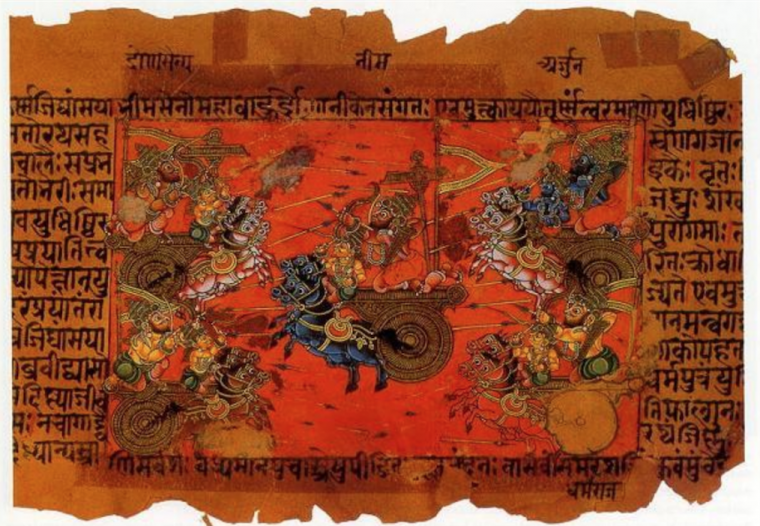A bizarre claim India invented the internet has troubling parallels for Christians
Now we know: it wasn't Sir Tim Berners-Lee who invented the internet, but ancient Indians thousands of years ago.
That's according to the chief minister of the state of Tripura, Biplab Deb, who bases his opinion on part of the Mahabharata, one of India's national epics. Based on a literal reading, one of the characters in the enormously long poem, Sanjaya, could give a detailed account of a battle taking place many miles away to his king Dhritarashtra. How was this possible? Why, the internet, of course, and satellite technology.

The Mahabharata originated – probably, though it's all a bit murky – some time in the 8th or 9th century BC, which places the origins of the internet nearly 3,000 years before we had all assumed. Nevertheless, while Biplab Deb's version of history hasn't found many takers, it's not the only example of Indian politicians making the past up as they go along. In September last year, junior education minister Satyapal Singh claimed the aeroplane was first mentioned in the ancient Hindu Ramayana, while India's prime minister Narendra Modi claimed in 2014 that Indians had invented plastic surgery, drawing on the legend of the god Ganesh's origin, in which the head of an elephant was grafted on to the body of a child.
But what's really going on here? At one level it's just foolish nationalistic self-aggrandisement. We can all relate to that – Hollywood regularly does it with American history, and have been a couple of British hit movies recently (Darkest Hour, Dunkirk) whose historical foundations are not really as secure as we might like to think. The difference is that those are entertainment: India's politicians mean their words to be taken absolutely seriously. In that light, they are riding the wave of Hindu nationalism that brought the Bharatiya Janata Party (BJP) to power. They're helping to create the myth that all good things are Hindu – a myth that's seen intercommunal tensions rise, with Christians and other minorities the victims of religiously-motivated violence. Mockery is a good response to that – but these outlandish claims are the canary in the coal mine, warning of a poisonous drift of rhetoric and ideas.
At another level, it reflects a kind of fundamentalism that's very familiar in Christian circles and that needs to be combatted again in every generation. In the context of the Mahabharata, it shows itself in the assumption that if the text says Sanjaya told Dhritarashtra all about a battle happening hundreds of miles away, it must actually have happened that way – and the science and history are warped accordingly in order to make it fit. Another story, in the Ramayana, is about how Lord Ram built a bridge from India to Sri Lanka to rescue his wife Seeta, kidnapped by a demon king – and yes, last year the chief minister of Gujarat, Vijay Rupani, praised Ram's engineering skills.
The parallel might be uncomfortable (it's so much easier, after all, to laugh at other people rather than at ourselves) but Christian fundamentalists do exactly the same thing when they read the creation stories of Genesis literally. They too try to shoehorn scientific facts into a story that was never intended be read that way, and the result is that the Gospel itself is compromised and loses credibility in a world that knows better.
Most Indians know very well that the Ramayana and the Mahabharata are poetic stories, not history (though the question of how much of a historic kernel there is continues to fascinate scholars). There are appropriate ways of reading different kinds of literature. That's true of the Bible too. How different kinds of stories are to be read is usually clear enough – the Resurrection is not a 'myth' or a 'legend', for instance. There are other stories where it isn't so clear – but the creation stories are very obviously theological in nature, rather than historical.
And there's another point, sadly, where the Indian and Christian experiences of textual fundamentalism overlap: in both cases it can become a tribal badge, a way of expressing a fierce loyalty to a group, often aggressively exclusive. These stories become proxies in a wider culture war, when what's really needed is an honest, patient engagement with what they are really trying to say.
Follow Mark Woods on Twitter: @RevMarkWoods











